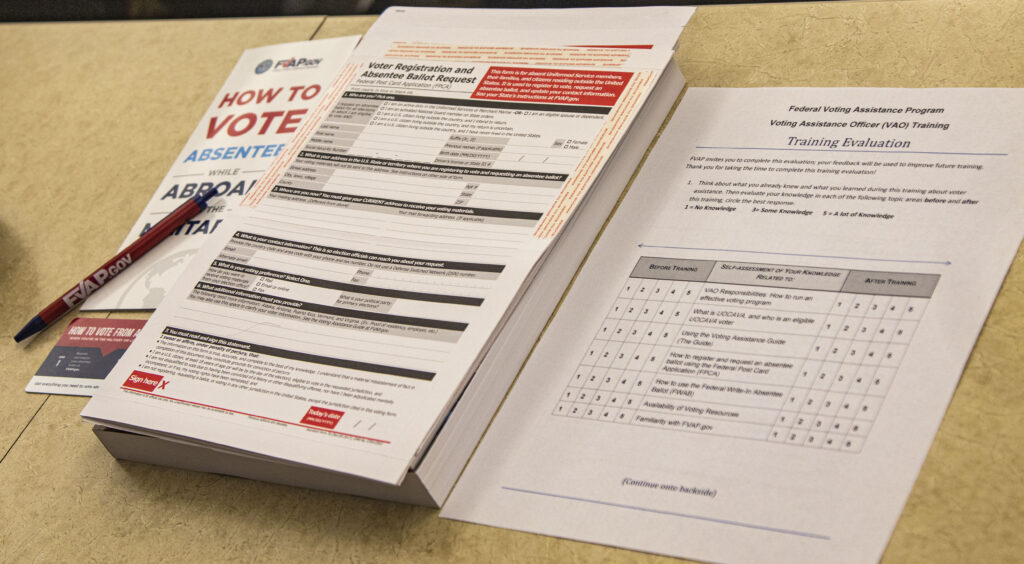Trial Begins in Legal Challenge to Missouri’s New Voter Suppression Law

When Missouri enacted its omnibus voter suppression law in June of 2022, it was met with swift, decisive pushback from voting rights advocates.
The League of Women Voters of Missouri (LWVMO) and the Missouri NAACP (MO NAACP) filed a lawsuit two months later to block some of the most egregious provisions of the law. A Missouri judge granted a preliminary injunction for the plaintiffs, temporarily blocking four provisions while the case continued. On Monday, a bench trial begins to determine if the provisions of the law violate parts of the Missouri Constitution.
At the heart of the lawsuit are claims against four provisions of the law that concern voter registration and absentee voting. Three of these provisions include a ban on anyone soliciting voter registration applications from being paid, requires any uncompensated person who solicits more than 10 voter registration applications to register with the secretary of state and mandates that anyone soliciting voter registration applications be registered to vote in Missouri.
The last provision the lawsuit challenges is a ban on individuals and groups asking voters if they want to fill out an absentee ballot application.
Under the new law, the penalty on both organizations and individuals for breaking these provisions ranges from fines to more severe consequences, like jail time and permanently losing the right to vote in Missouri.
But the law, according to the plaintiffs, doesn’t specify what it means to “solicit a voter into obtaining an absentee ballot application,” nor does it offer any clear definitions of “solicitation” and “compensation,” making these prohibitions vague and ill-defined. In essence, what these provisions do is make it harder for pro-voting groups like LWVMO and the MO NAACP to hire people to help register voters throughout the Cave State.
The law, pro-voting plaintiffs argue, “chills [their] protected speech, expressive conduct, and associational activities, prohibiting them from fully engaging with their members and other eligible voters and absentee voters.” And, in regard to the Absentee Ballot Solicitation Ban, “significantly curtail[s] their voter education and engagement related to absentee voting, chilling their speech, expression, and association.”
When the lawsuit was first filed back in 2022, a Missouri judge temporarily blocked these four provisions, concluding the plaintiffs have “a fair chance of prevailing on the merits.” The judge also said that, should these provisions remain, both of the pro-voting groups who filed the lawsuit face the “‘threat of irreparable harm’ absent an injunction.”
“In these Jim Crow provisions, lawmakers stripped us of critical ways to engage our communities by criminalizing our ability to encourage voting and good citizenship,” Nimrod Chapel, Jr., President of the MO NAACP, said at the time of the preliminary injunction. “Black voters have been disproportionately harmed by these restrictions.”
Now, nearly two years after the judge granted a preliminary injunction to the plaintiffs, the bench trial finally begins. In their initial lawsuit, the plaintiffs said Missouri’s lawmakers have “no compelling, or even legitimate, interest in so severely restricting the content and conveyance of Plaintiffs’ political speech, expression, and association in favor of voter registration and absentee voting.”
The judge who granted the preliminary injunction stated in his opinion back in 2022 that the “chilling effect of the Challenged Provisions threatens to cause increased voter confusion and decreased voter participation.” Should these provisions stand, there’s no doubt they’ll have a significant impact on the work of civic groups like the LWVMO and the MO NAACP during a critical period for elections.